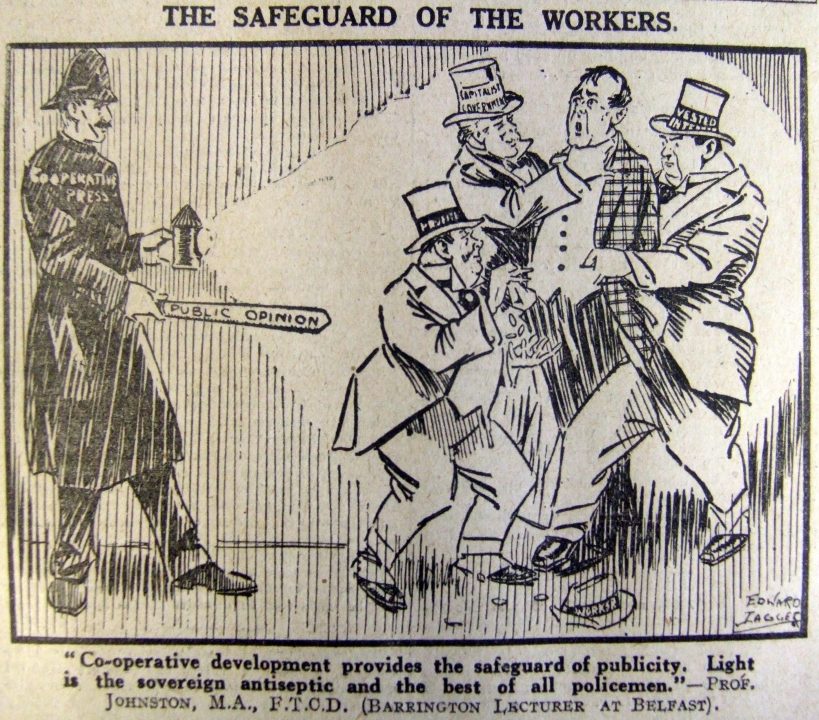Liz McIvor, Co-operative Heritage Trust manager, looks a the importance of saving contemporary materials for future generations.
The Co-operative Heritage Trust (CHT) was formed in 2007 at a time of economic uncertainty to safeguard historic assets held by the founder organisations, the Co-operative Group, Co-operative College and the Co-operative Union (now known as Co-operatives UK).
The collections chart the development of the co-operative movement in the UK and include newspapers, periodicals and articles, film and photography, propaganda and personal correspondence collections as well as physical objects. Making these resources available to a wider audience offers a window into the past; to understand how co-operators responded to major events and change.
This is what people understand museums and archives are for; but what about the collecting of more contemporary records which reflect modern events? After all, we are making tomorrow’s history today. How do we decide what to collect to represent the modern movement?

In response to the emerging Covid-19 crisis, these questions seemed to be galvanised into a campaign to collect evidence of decisions co-ops are making in a time of crisis, and the impact that the pandemic is having on the sector. We are asking for co-operators of all sizes to keep and donate the materials they create during the crisis. We want to record how business models change and the experiences of employees in different roles as well as how the response is perceived by the wider society at a time of great uncertainty.
Why is this? Understanding history helps us plan for the future. ‘Notifiable diseases’ are covered by insurers to protect businesses and livelihoods. At the start of the current outbreak, Covid-19 was not covered but measles was; although measles is not seen as a major risk today – it represented a risk in the past. We wanted to see how modern co-operators respond to something on this scale; given that the last event like this was the H1NI Covid strain of influenza now known as the Spanish Flu, which there is no living memory of.
Not originating there but covered by Spanish press due to the country’s neutrality in the First World War; the virus spread across the globe and the successful measures put in place to stop it were collective ones. Social distancing and ‘sanitary measures’ were put in place to prevent large groups gathering in public places; steps were taken in food stores to limit contact and ensure a fair supply to communities. At the time, the local co-operative retail stores; lifelines in most working-class communities, would have been at the forefront of response in the same way that food retailers and distributors are today. It was at this point in 1919 that societies began to formally professionalise and train their employees to widen the skill base and diversify in markets. The Co-operative College opened its doors in the Union building in the wake of the second wave of the pandemic and a resolution for reconstruction at the 1919 Co-operative Congress.
We are not able to open our museum or archive to visitors, welcome school groups or hire our space to generate income. In response, we are increasing our digital presence by creating online content for users based on our records and collections. Staff at the Trust are creating homeschooling resources for use in the lockdown; making documents available for researchers and are using our time remote working to create an enhanced experience for audiences in the future. We remain available to the public to answer enquiries and to work in partnership to find ways to be meaningful to more of you in the coming months.
To subscribe and find out more about CHT’s crisis collections, click here.
To support its work or offer your suggestions, contact the Heritage Trust at [email protected] and [email protected].